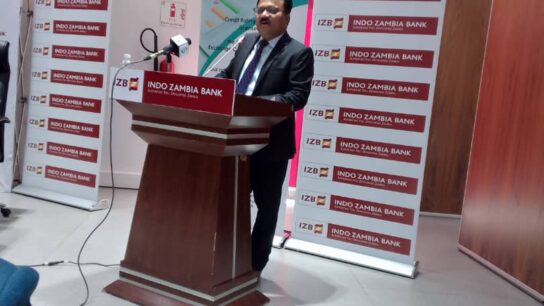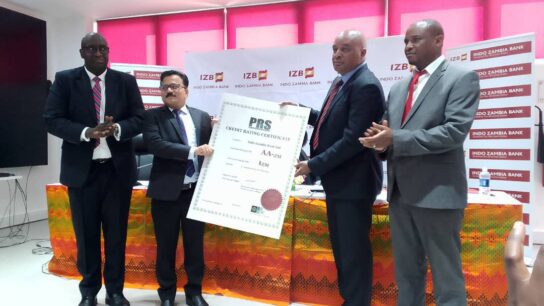Finance Minister, Dr. Bwalya Ng’andu has proposed a 106 billion kwacha representing 34 percent of the Gross domestic product with K72 billion to be raised through domestic revenue mobilization while the rest will be financed through external financing.
Speaking when he presented the 2020 national budget titled “Focusing national priorities towards stimulating the domestic economy.”, Dr. Ng’andu says the budget to achieve its objectives, as it will require to deliver on the country’s commitments with discipline, determination and dedication.
Dr. Ng’andu says in order to finance expenditure spelled out for the 2020 Budget, the government expects to raise a total of K106.0 billion for the 2020 Budget of which K53.8 billion will be raised from taxes.
He adds that K18.2 billion will come from non-tax revenues, and K3.1 billion will come as project support grants from our Cooperating Partners while domestic financing will account for K3.5 billion with K27.5 billion to be sourced externally.
The Finance Minister has proposed to spend K21.8 billion under Economic Affairs function ou that amount, K10.6 billion is for road infrastructure, K1.1 billion towards Farmer Input Support Programme and K660 million towards the purchase of strategic food reserves.
And Dr. Bwalya Ng’andu has proposed in the budget to maintain Value Added Tax by discarding the goods and services tax as he has tightened measures to make VAT more effective.
“Mr. Speaker, in the 2019 Budget Address, Government proposed to abolish Value Added Tax and replace it with Sales Tax. Following the pronouncement, a number of concerns were raised by various stakeholders, which included the cascading effect, negative impact on GDP growth and job losses through elimination of intermediaries in the supply chain” he explained.
“Sir, based on the outcomes of the consultations, Government has decided to maintain the Value Added Tax, but address the compliance and administrative challenges. In this regard, I intend to introduce the following administrative measures to strengthen enforcement and efficiency of VAT:
i. Upgrade the Taxonline system for domestic taxes and interface it with customs system to ensure that all claims of refund for import VAT paid to Customs Services during import of goods are validated through systems-based controls against data in the customs system; ii. Make it mandatory to use Electronic Fiscal Devices (EFD) for VAT and other tax types and facilitate accreditation of additional EFD distributors and Virtual EFD software suppliers” he added.
106 billion Kwacha national budget proposed .








